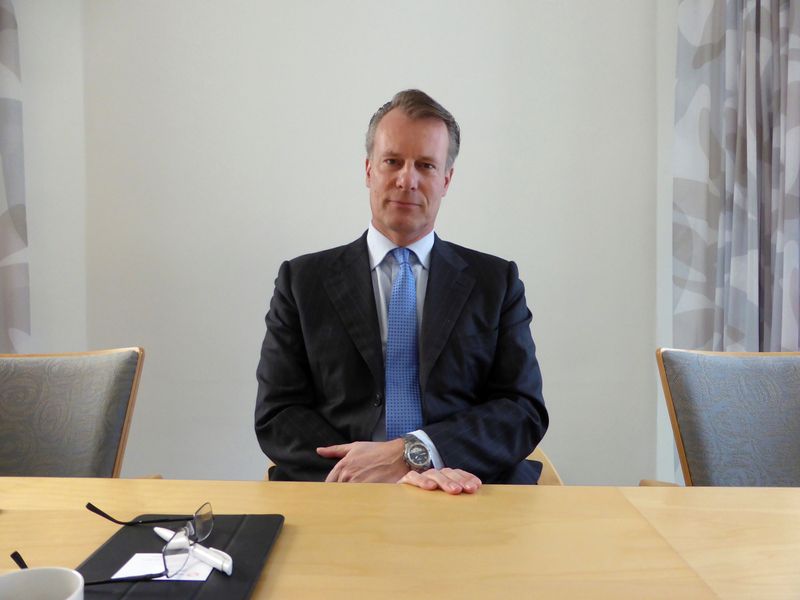By Gwladys Fouche
OSLO (Reuters) - Norway's $1.3 trillion wealth fund will probe whether companies it is invested in may be using the labour of ethnic Uighurs and other Muslims linked to China's internment camp system in the country's Xinjiang region, the head of the fund's ethics watchdog told Reuters.
The world's largest sovereign wealth, which has massive market influence because it owns 1.5% of the world's listed shares across 9,100 companies, operates under ethical guidelines set by parliament.
Johan H. Andresen, chair of the fund's Council on Ethics, said the fund had begun identifying companies that it said used workers that had been held in internment camps in Xinjiang.
"We are concerned that some of our companies in the fund may make use of this labour. This is possibly a widespread practice," he said in an interview ahead of the publication of the council's annual report on Wednesday.
"If we were to make a recommendation it would be in the first half of this year," he added. Recommendations are sent to the board of the central bank, which ultimately makes decisions.
The central bank typically follows the council's recommendations to censure companies but sometimes, rather than immediately excluding them, it puts them on a watchlist to give them a set period of time to come up with a plan to change their behaviour, or face exclusion.
The bank can also ask the fund's management to engage directly with the company on the issue of concern and can also decide to divest from a company if it believes the fund's ownership stake poses too much of an ethical risk.
Companies to be excluded are not named until the fund has sold the shares, to avoid the stock falling in value beforehand. The main aim is to remove the ethical risk.
China denies accusations of abuses in Xinjiang, where U.N. experts and rights groups say more than one million people have been detained in recent years, and has said the complexes it set up in the region provide vocational training to help stamp out Islamist extremism and separatism.
China has said that all the people who attended the camps have “graduated” and gone home. Access to the complexes is restricted and it is not possible to independently verify whether all the camps have closed.
ETHICAL GUIDELINES
The fund is forbidden by parliament from investing in companies that produce nuclear weapons, landmines, or tobacco, or which violate human rights, among other criteria.
Several textile companies have been excluded from the fund, most recently India's Page Industries, which produces swimwear for the Speedo brand. Page denies wrongdoing.
The Council is now turning its attention to companies that produce footwear, "a natural extension" of its work in the textile industry, Andresen said, given that the production processes are similar.
"We are still at an early stage," he said.
Forced labour, or modern slavery, is also becoming a growing issue that will dominate the council's work in the years ahead, he said. The council will this year commission a report from a non-governmental organisation to map out the extent of forced labour worldwide.
The fund has already excluded companies, including security firm G4S (CSE:G4S), on those grounds. G4S said at the time it had engaged with the council and was making good progress on recruitment and welfare standards.
Overall some 70 companies have been excluded by the fund, on various grounds, on recommendations from the Council on Ethics. Another 73 companies have been excluded directly by the central bank based on their dependence on coal.
